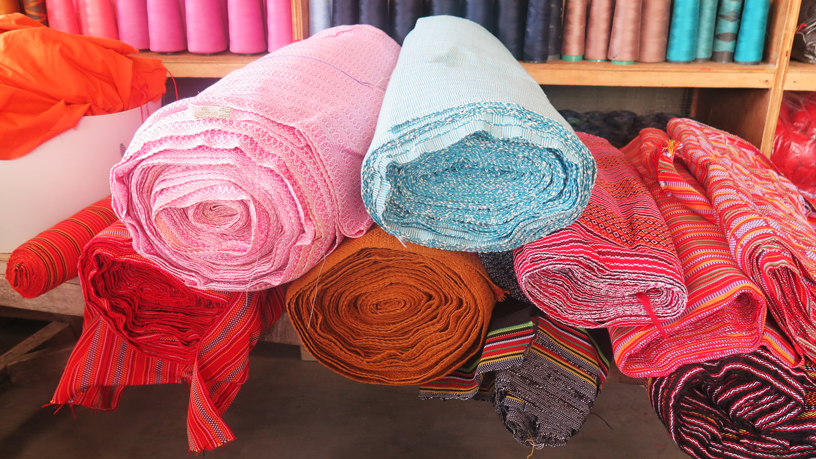ENABEL ENABLES A COMMUNITY
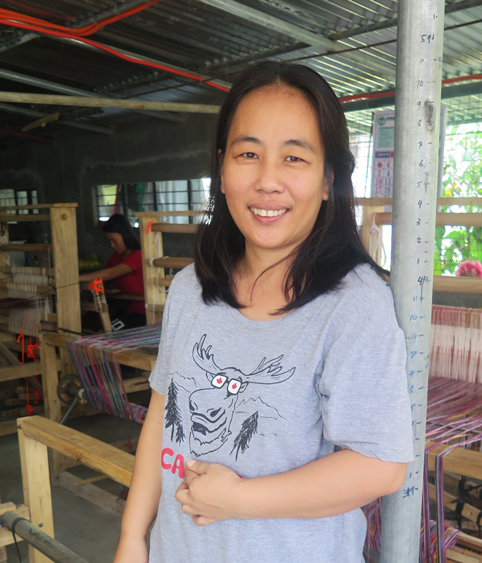 Andrea Q. Aswigue of Quezon, Isabela has always been interested in indigenous crafts. She was part of a weaving association for a few years, which gave her an idea to establish a profitable venture.
Andrea Q. Aswigue of Quezon, Isabela has always been interested in indigenous crafts. She was part of a weaving association for a few years, which gave her an idea to establish a profitable venture.
In March 2016, with only three loom weaving machines, she started her own weaving enterprise and called it Indigenous Enabel Craft.
With no formal training in weaving and only knowledge from experience and some secondary sources, she went out of her way to learn the techniques of weaving.
“Everything was self-taught. I had no formal training, but I learned from various sources such as tutorial videos,” said Andrea who also spent a significant amount of time learning how to read weaving patterns.
Equipped with the basics, Andrea continues to acquire the needed skills and techniques to meet the demands of her clients. Upgrading her knowledge is significant to offer clients new products, she said.
“There are times when the patterns from clients are too complicated. But I make sure to study them thoroughly to meet their expectations. And I think we have not failed them so far as orders keep on coming,” Andrea said.
The first order she received was from a contract in Tabuk, Kalinga. Then Andrea reached out to other potential clients she had met during her weaving association days. She got several orders after, and was able to get a steady stream of income. The clients she had since day one continue to place orders from her until today.
Helping hands
Andrea said she will always be grateful for the support from the Department of Trade and Industry (DTI) and the Provincial Government of Isabela. Both institutions, she said, have been supportive since day one.
“If not for them, I will not be able to offer our products to a wider market,” said Andrea who added that the trade fairs organized by DTI have helped her significantly in meeting not just direct clients but fellow business owners as well. Some of these business owners own pasalubong centers and eventually offered her to display products in their stores.
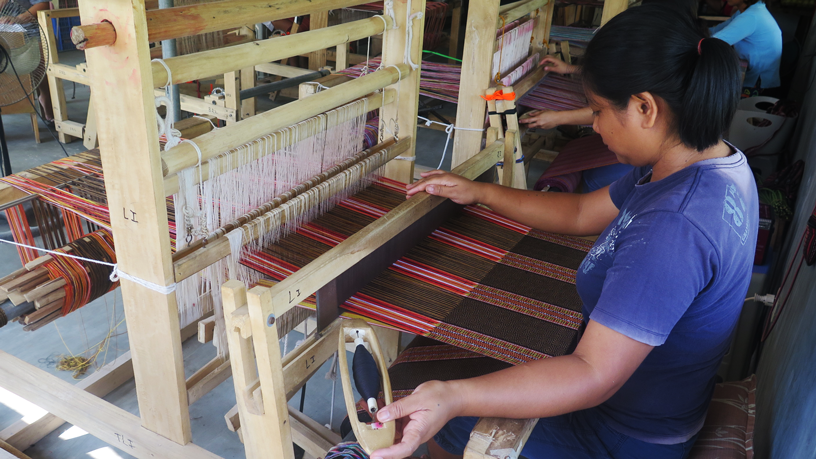
Andrea shared that the local government in her area also regularly orders from Indigenous Enable Craft for souvenir needs. There was even a time when she was commissioned to provide the fabric during the street dance competition and fashion show organized by the local government.
“People were not aware that there is a weaving business here in our area. After two days, the Mayor even paid a visit to see our products,” she shared. This opened more opportunities and after she became known to more clients after.
Andrea is also grateful for meeting Manila-based entrepreneurs who have been sourcing fabrics from her, including Akaba, WVN Home Textiles, and Manila Collectibles.
Her fabrics have also penetrated the online market as one of her clients started selling products through Zalora, a popular online shopping platform.
Because of the high demand, Andrea was able to purchase additional looms and hired additional weavers. From the three looms she had when she was still starting, her business now owns 11 looms. This helped her meet the increasing market demand.
She was able to put up a working area for her weavers. They used to work in a balcony, now, they have their own weaving centers where weavers can work better with ease.
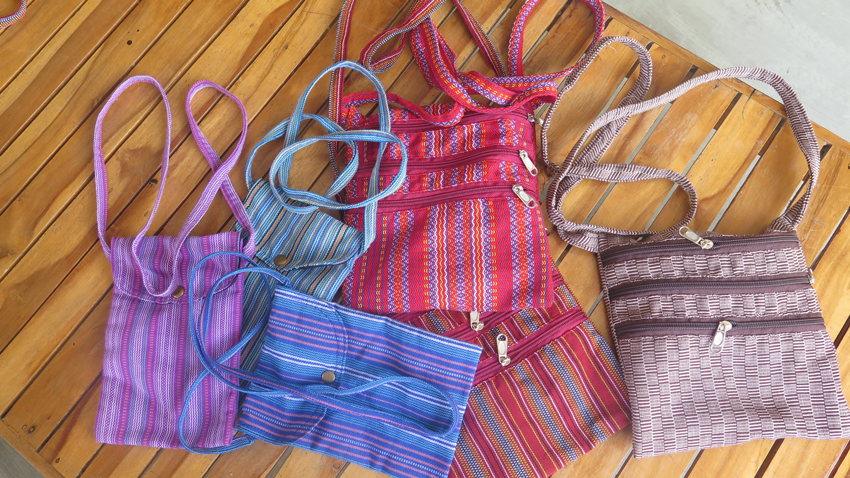
Taking care of the workers
“Without our workers, we are nothing,” said Andrea acknowledge the contribution of her weavers in the success of the business.
She stressed the importance of treating the workers fair, which should apply in any kind of business. At present, Indigenous Enabel Craft provides livelihood to 11 weavers.
“If there are problems with the quality of their work, I talk with them privately. We discuss how the output could be improved,” said Andrea who added that she never had any serious problem in dealing with her workers. They do what is expected of them and improve whenever they are given constructive criticisms, shared Andrea.
“I would always tell them to help me deliver the orders on time, so we could have a stable livelihood,” shared Andrea. “Meeting the deadlines is crucial, and I need the help of the weavers to comply with the needs of the clients.”
The weavers earn Php 60 per yard of completed fabric. Most of the time, weavers had to render overtime, which means additional take home money for them. On the average, a weaver completes 10 yards of fabric per day. Weavers also produce shawl, table runners, and scarves, and they were also paid on per yard basis.
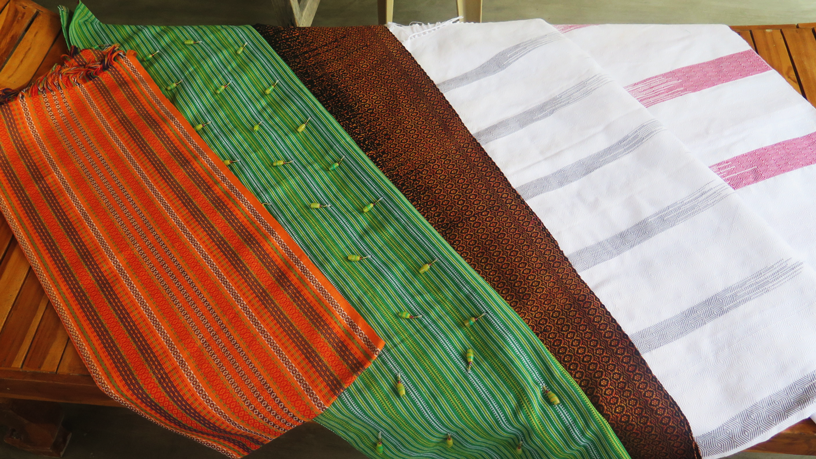
“We pay them per output, so their monthly income actually depends on how hard they work,” said Andrea. “If you work hard, you can earn more,” she added.
In a way, Andrea is helping improve the living conditions of her weavers as they do not need to leave their town and work somewhere far. Many of their neighbors actually expressed interest to work for her, but the available looms cannot accommodate all of them.
Currently, Andrea employs female weavers but she however clarified she is willing to hire men who can to learn the craft.
Asked on her business plans, Andrea shared that they are eyeing to explore and tap foreign markets. But for now, she wants to focus on delivering quality products to her growing clients base, most of whom have been there when the business was starting.
“I want to focus on making quality products for my clients. If I take care of them and my workers, expansion will happen naturally,” she stressed.
